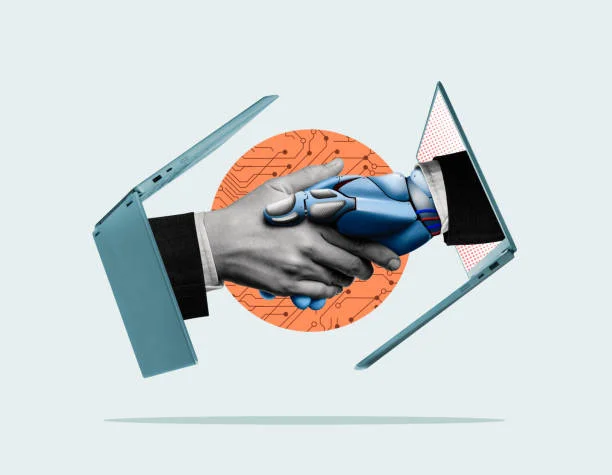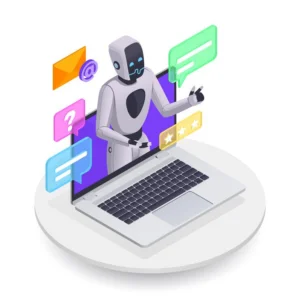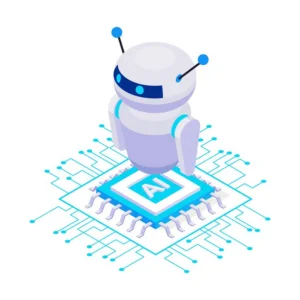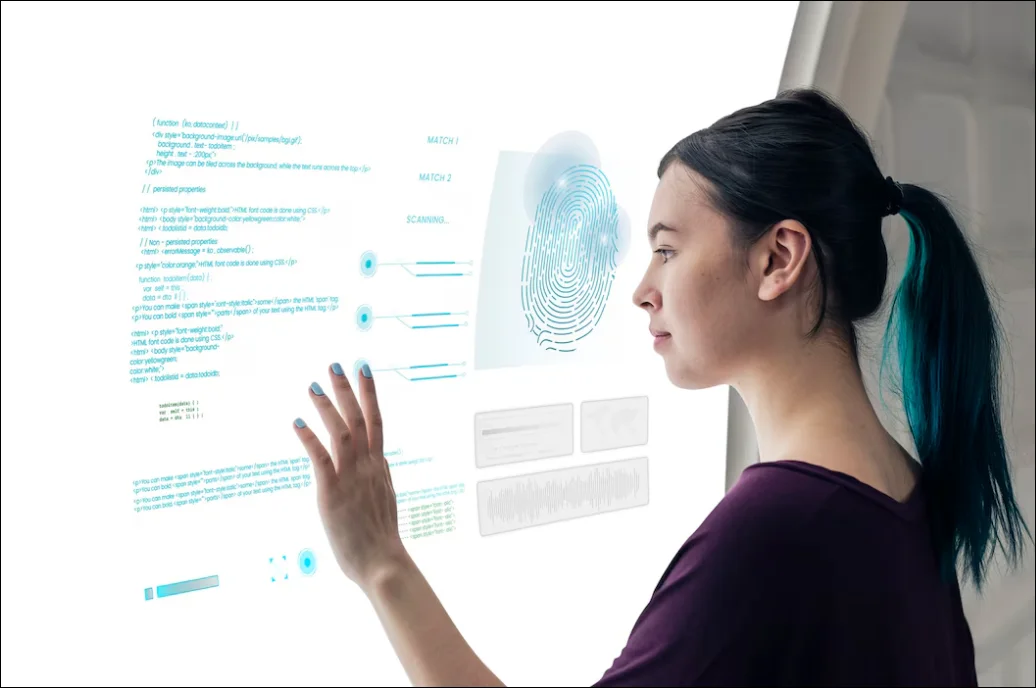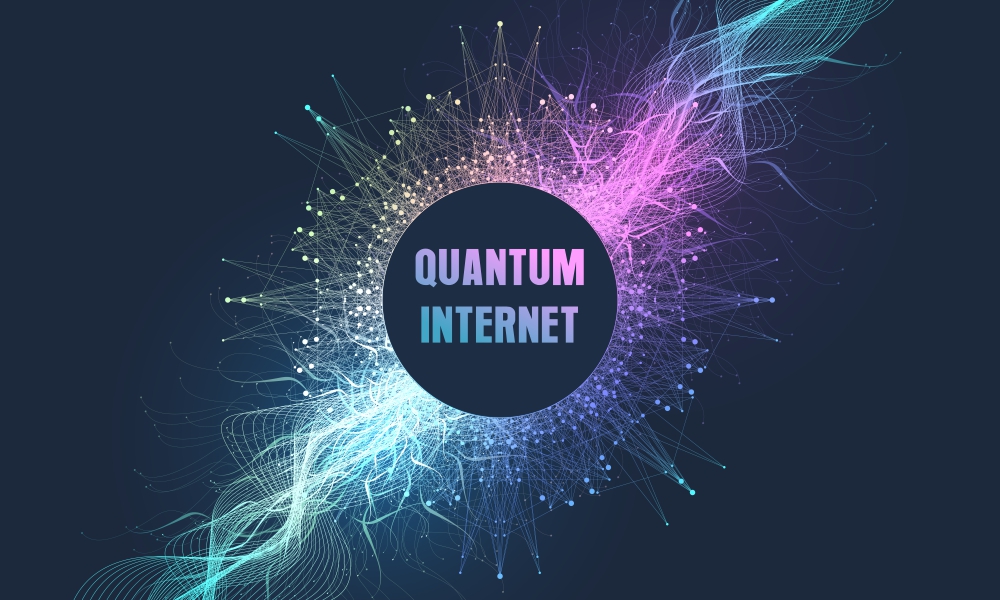ChatGPT took the world by storm when it launched in November 2022. This conversational AI seems capable of human-like discussions on almost any topic. But is ChatGPT only good for casual chit-chat? Or can it also deliver value for businesses? Let's explore.
Introduction to ChatGPT
ChatGPT is a conversational chatbot developed by OpenAI which recently went out of beta mode and is currently available with a lot of functions. It uses a cutting-edge natural language processing technique called Transformer to understand complex language inputs and generate highly coherent responses.
The bot can maintain lengthy conversations, answer follow-up questions, admit mistakes, browse the Internet, challenge incorrect premises, and reject inappropriate requests. This human-like interaction ability has fascinated millions of users. But the hype also raises questions about ChatGPT use cases for businesses beyond everyday chatter.
Model 3.5: When AI Went Mainstream
ChatGPT represents a major upgrade from OpenAI's previous GPT-3 language model to the more advanced GPT-3.5. Training on vast datasets for over 18 months increased its context-handling ability dramatically.
Despite being significantly larger than its predecessors, the GPT-3.5 shares the same transformer design. With nearly 200 billion more parameters than GPT-3, which has over 175 billion, it is roughly twice as large. The larger model size of GPT-3.5 allows it to process more intricate linguistic subtleties and generate responses that are more logical and contextually accurate. The launch has made complex AI accessible to mainstream users.
The vastly expanded model architecture and training of GPT-3.5 allows it to track context during long conversations better and respond sensibly. With access to much more data and computational power, OpenAI could increase the model size from its previous version by an order of magnitude. This enabled far more nuanced language processing.
ChatGPT is built using transformer-based neural networks, which are especially adept at processing sequences like text. The scale of data and parameters in GPT-3.5 gives it an unprecedented ability to generate high-quality written content that mimics human style.
Model 4.0: An Improved Version?
In January 2023, OpenAI CEO Sam Altman hinted at testing an even more advanced model called GPT-4. This next-generation version is rumored to have over 200 billion parameters, which could enhance ChatGPT's capabilities further.
OpenAI will likely keep tweaking its models. But for now, 3.5 seems capable enough for real work.
As AI capabilities continue advancing rapidly, OpenAI is already exploring the next evolution beyond ChatGPT. GPT-4 is expected to be launched later in 2023 with double the parameters of the current model, likely over 200 billion.
This increased model capacity could make its language generation and comprehension ability even more nuanced and accurate. More data and parameters allow AI models to learn the intricacies of human language better.
What Can ChatGPT Offer for Business?
So, beyond its engaging chat skills, how can ChatGPT deliver business value? Here are some key possibilities:
Content Creation
The AI's strong language generation abilities allow creating high-quality content for businesses like articles, social media posts, emails, letters and more based on prompts. This can boost marketing and communications. Content remains one of the top uses of ChatGPT for businesses today.
Market Research
ChatGPT can digest company data and external sources to generate insightful market research reports, competitor analysis documents and opportunity assessments to aid strategy decisions. The AI can synthesize trends and patterns in data to support business analysis.
Customer Service
An AI assistant like ChatGPT could handle common customer service queries, provide recommendations, and address complaints, freeing up human agents for complex issues. As a conversational AI, it excels at natural language interactions.
Coding and Programming
Developers are using ChatGPT to generate boilerplate code, documentation and even fix bugs! The AI suggests simpler approaches to complex programming problems too. But fully relying on it for coding still has risks.
Data Analysis
Though lacking statistical capabilities currently, ChatGPT can interpret trends in datasets and generate basic data-driven insights for businesses. However, for numerical analysis, spreadsheet tools may be better suited.
In addition, ChatGPT shows promise in aiding recruitment, contract review, research analysis and technical writing. Its conversational nature allows for gathering information interactively. But verifying the accuracy of its output is advisable before usage.
Successful and Unsuccessful Use Cases of ChatGPT
ChatGPT is still an early version and has limitations. Reviewing some real-world examples shows where it adds value and where it falls short.
Successes:
- An educator used ChatGPT to create engaging lesson plans adapted to diverse learning abilities.
- A marketing analyst generated insightful competitive reports by having ChatGPT synthesize industry data.
- A company automated customer service with a ChatGPT chatbot handling routine queries.
Failures:
- ChatGPT produced verbose but inaccurate content for a client brief due to a lack of context.
- When asked complex analytical questions, the AI-generated plausible-sounding but wrong answers.
- Over-reliance on ChatGPT caused a drop in creative thinking for an ad agency.
Can ChatGPT Offer Something for Your Business?
ChatGPT shows promise but is not yet reliable enough for many business uses beyond basic content creation. OpenAI itself advises cautious adoption. Evaluate your needs to see if it can add value today:
- Does your business require sophisticated analytics or quantitative capabilities? ChatGPT has limitations there.
- Do you value originality and creative problem-solving? Overdependence on ChatGPT may deskill employees.
- Does your industry demand high-accuracy information like legal or medical? ChatGPT's reliability issues may be risky.
- Does your use involve sensitive data? ChatGPT's cloud-based nature poses confidentiality issues.
If your needs center around text generation and conversational assistance, ChatGPT could help boost productivity. But implement with care to avoid pitfalls.
Conclusion
ChatGPT signifies a major AI milestone, even though its full potential is yet unrealized. While promising for many business applications, overhyping needs to be avoided. Astute deployment that complements human skills - not replaces them - is key to amplifying productivity without detrimental effects.
Adopting any transformative technology requires balanced optimism with prudent risk management. As AI capabilities grow, integrating solutions like ChatGPT where appropriate while being mindful of limitations can drive business success. But human creativity, ethics and oversight remain indispensable.
Also Read: Tech Intelligence & Human Intelligence: Can AI Beat Human Intelligence?

